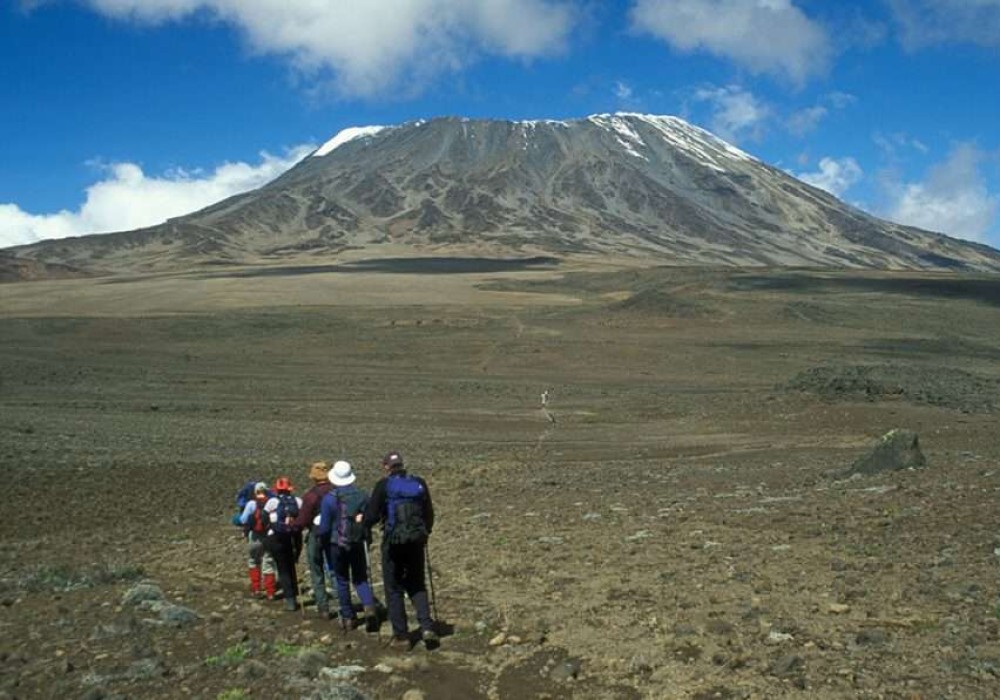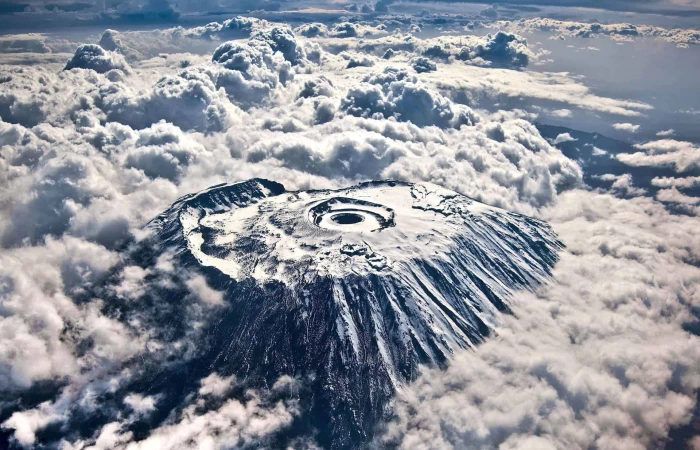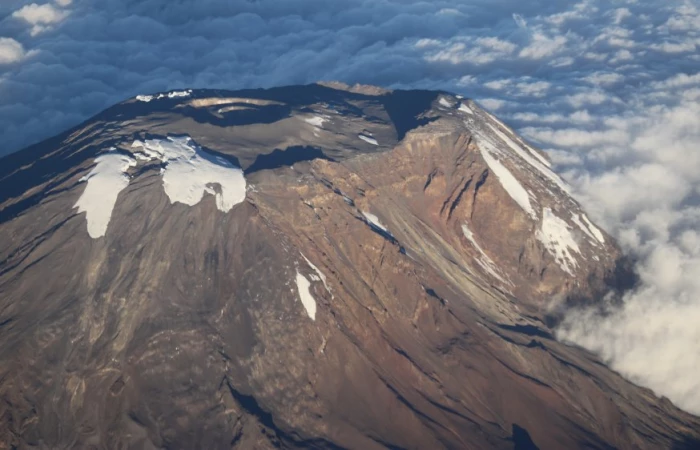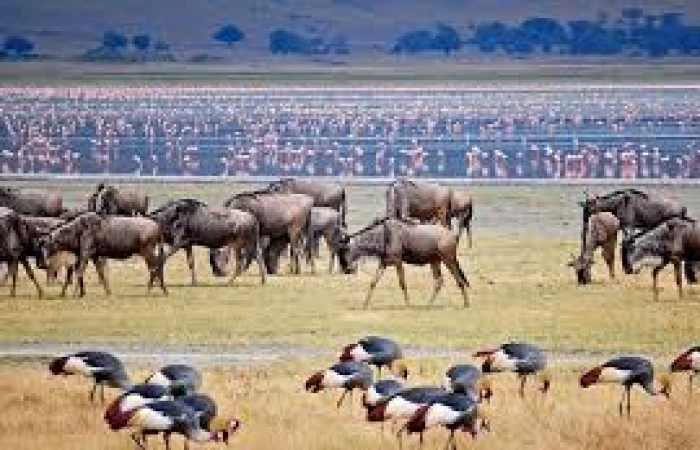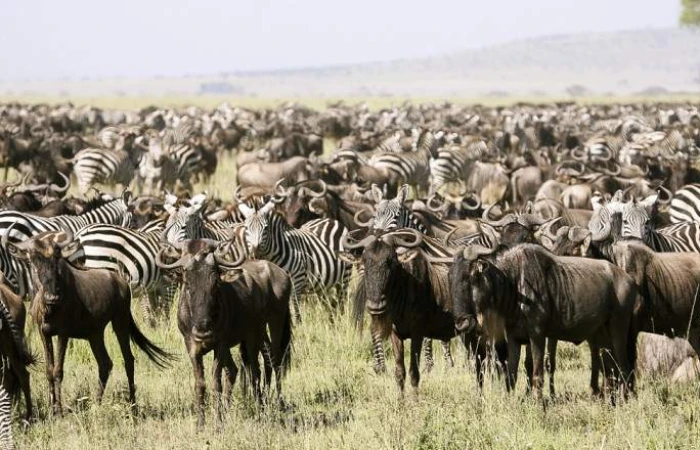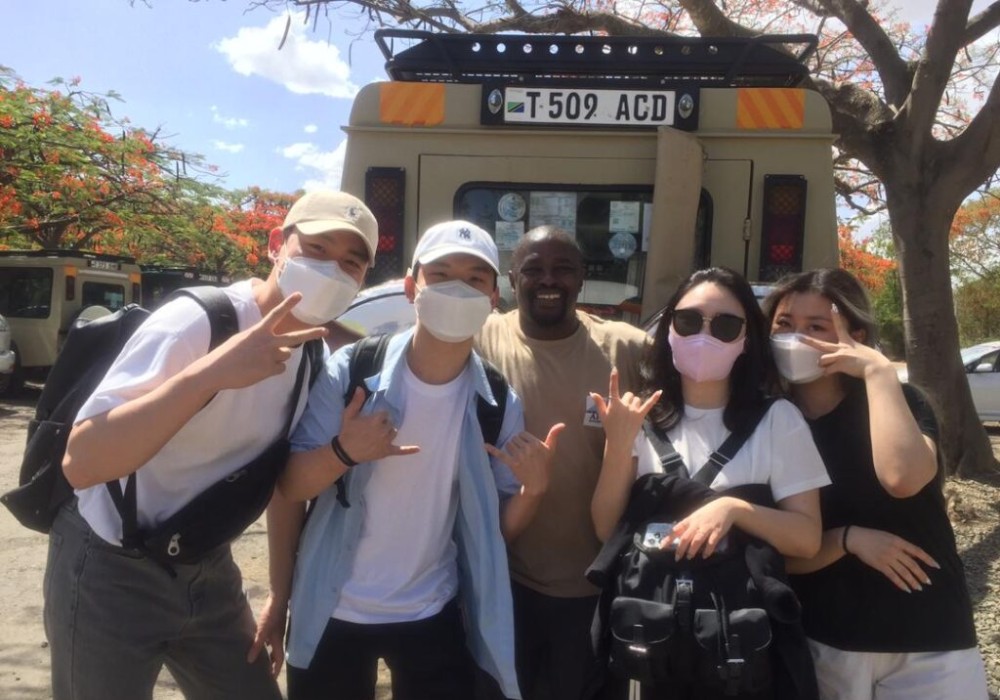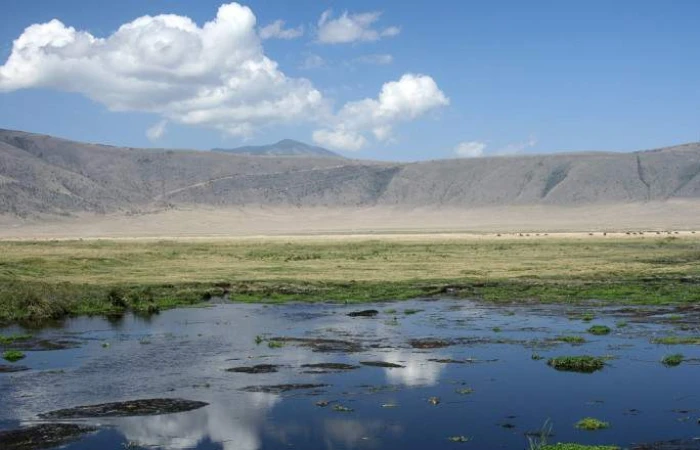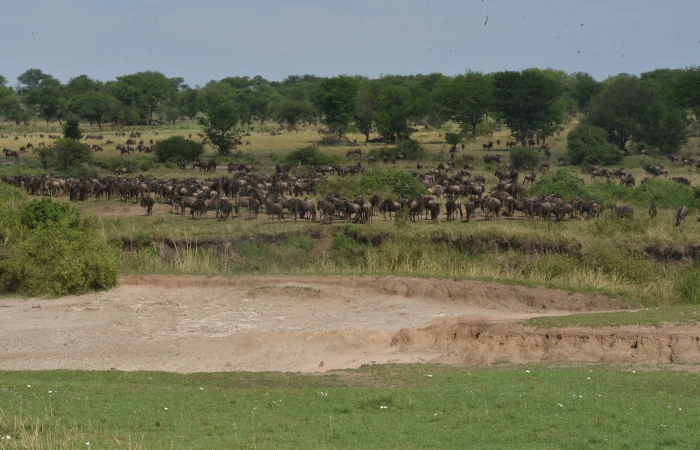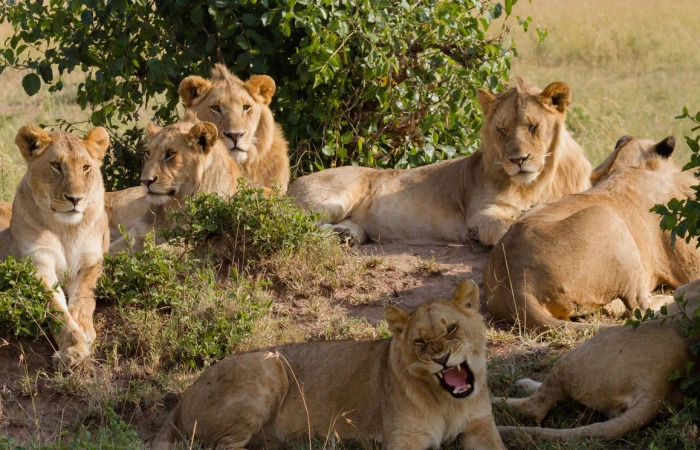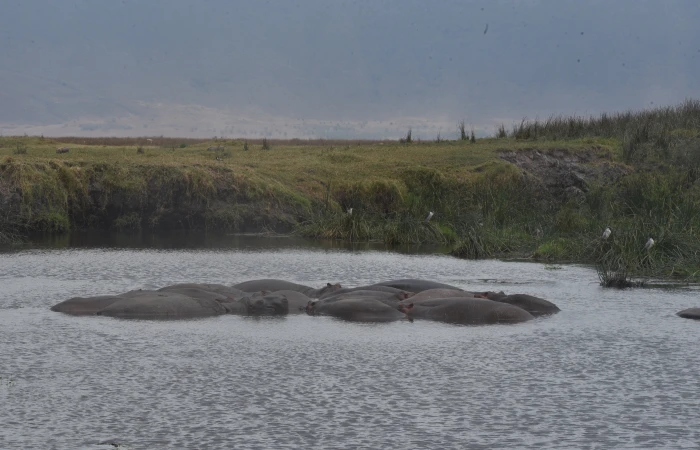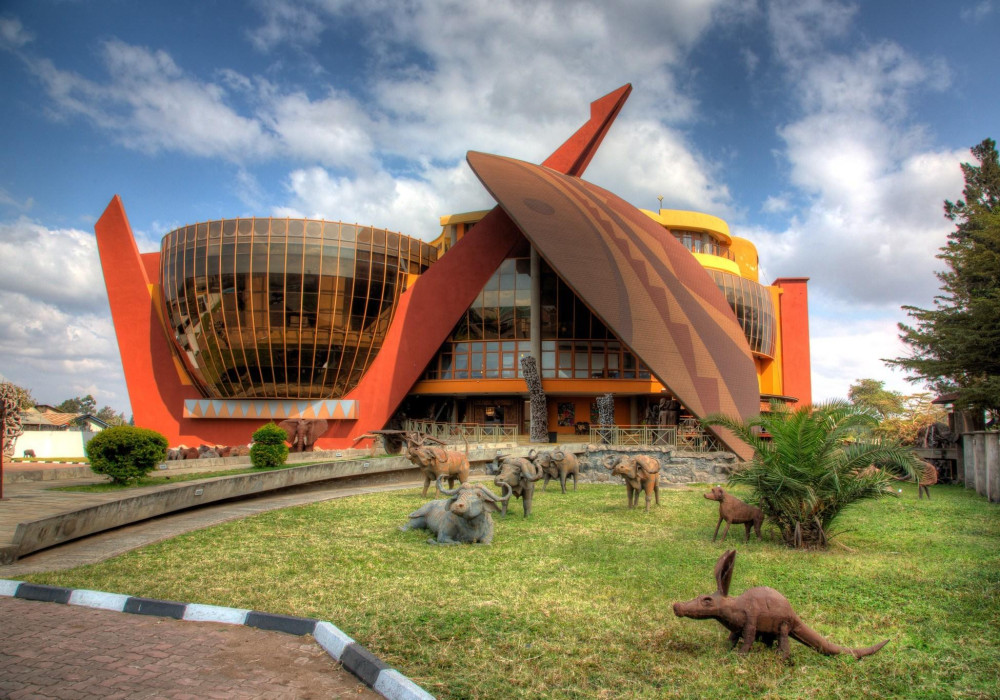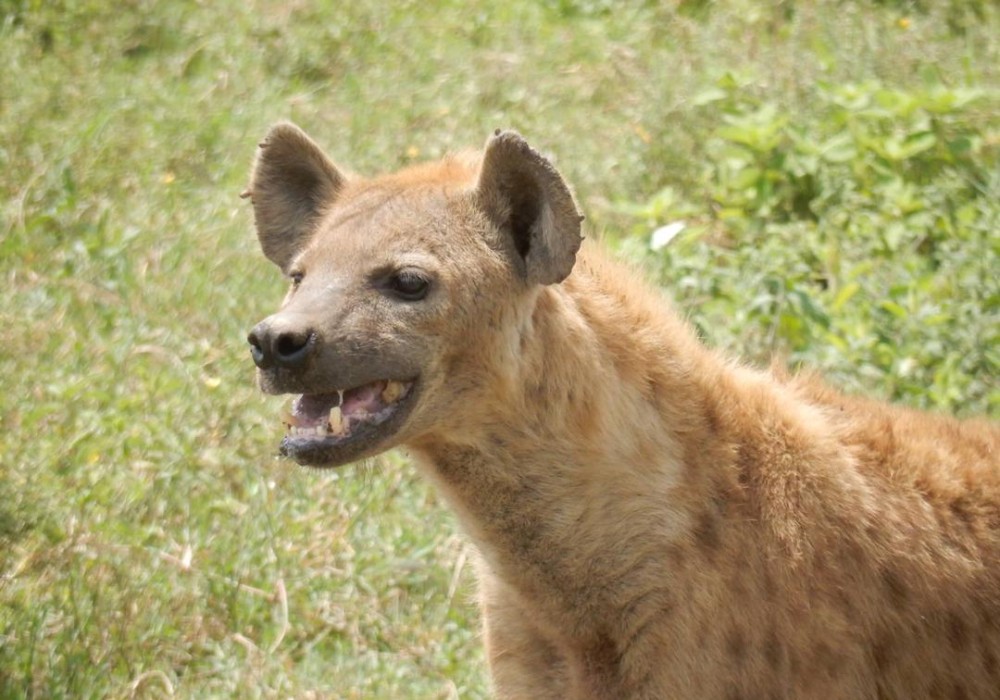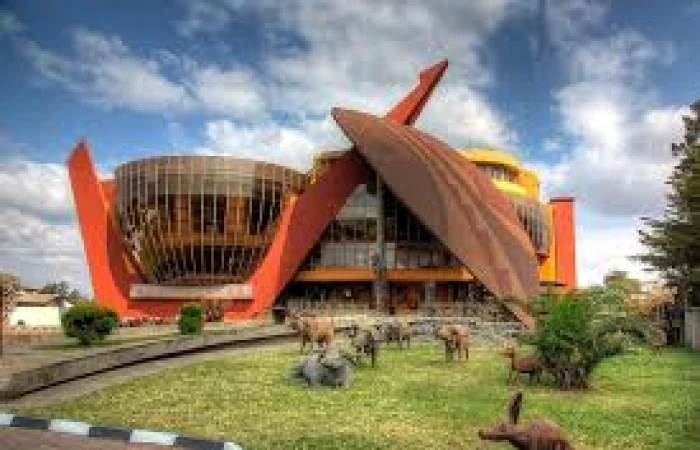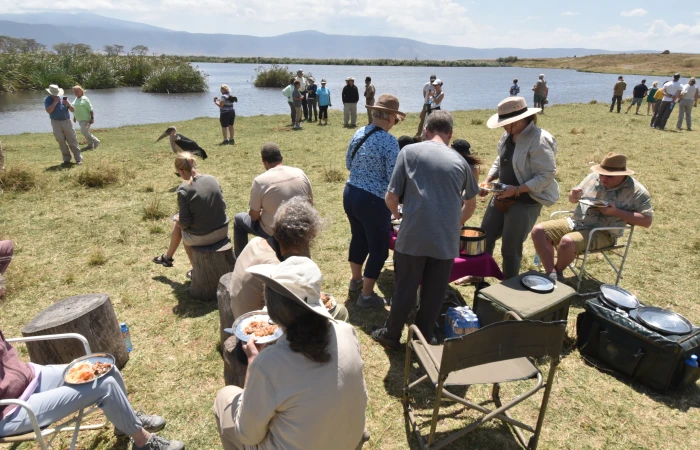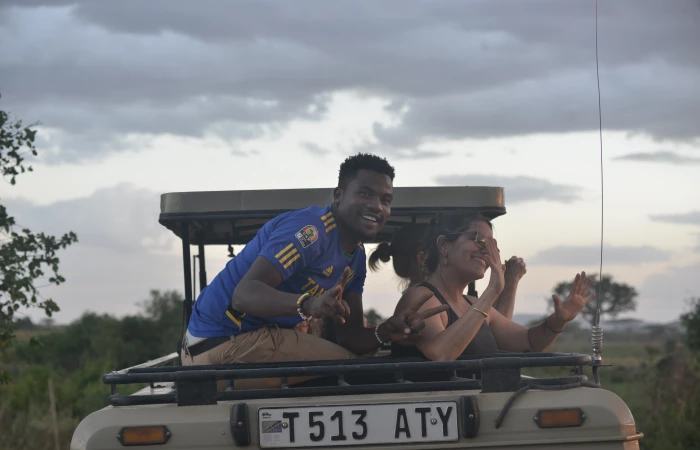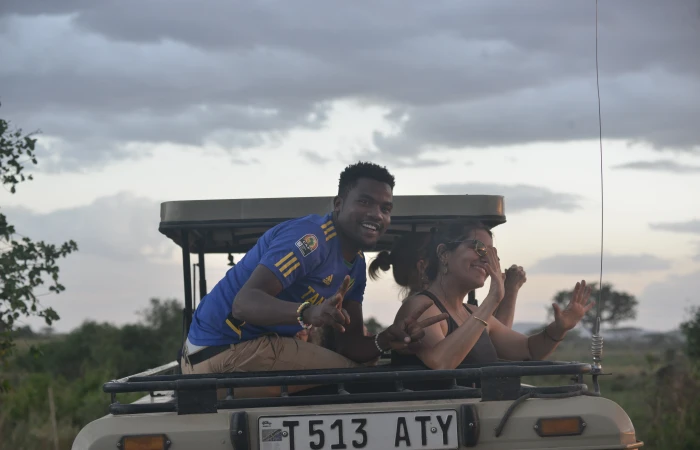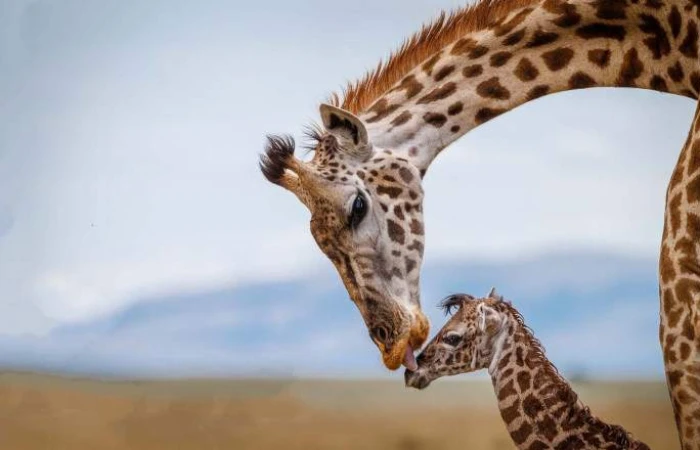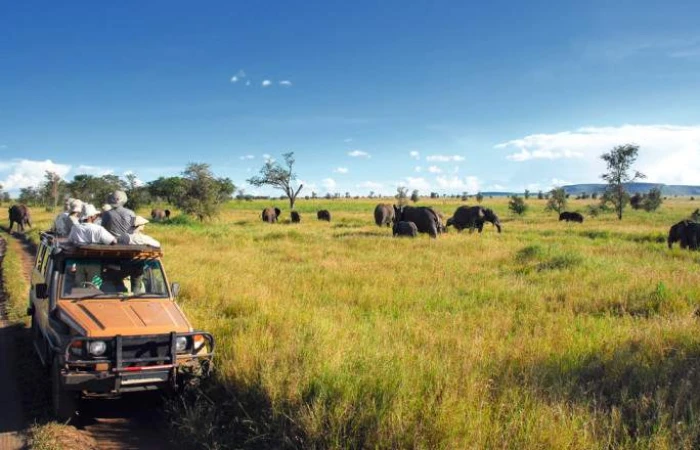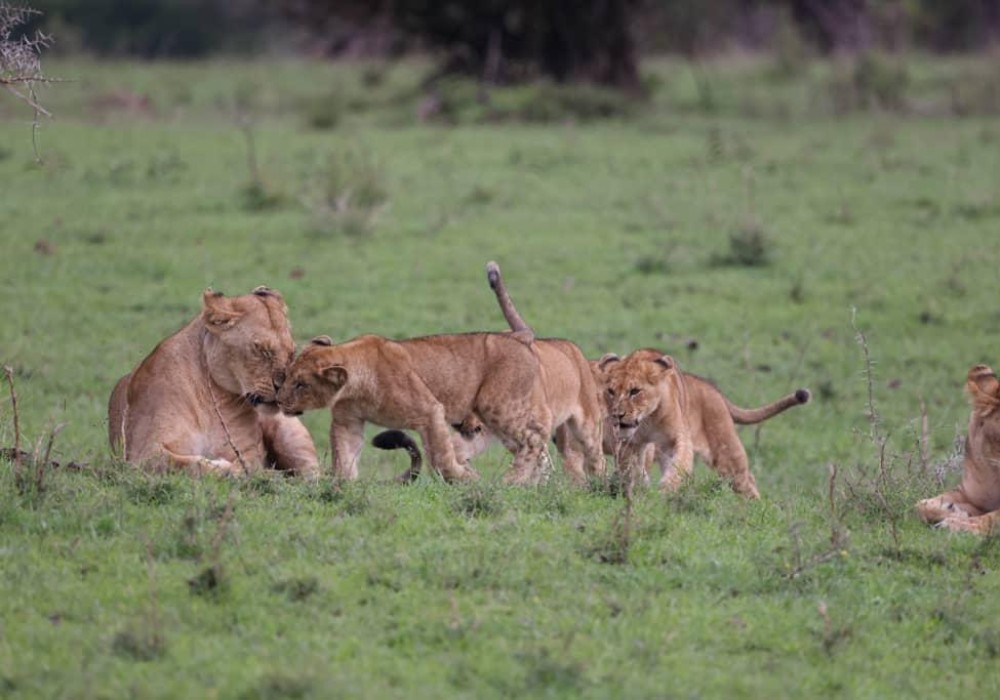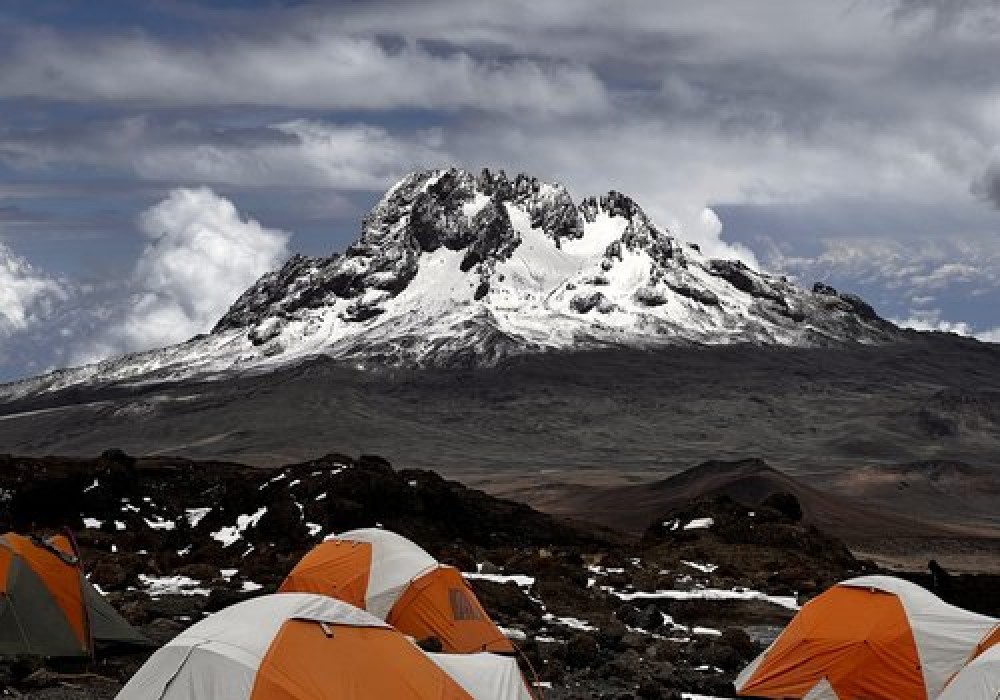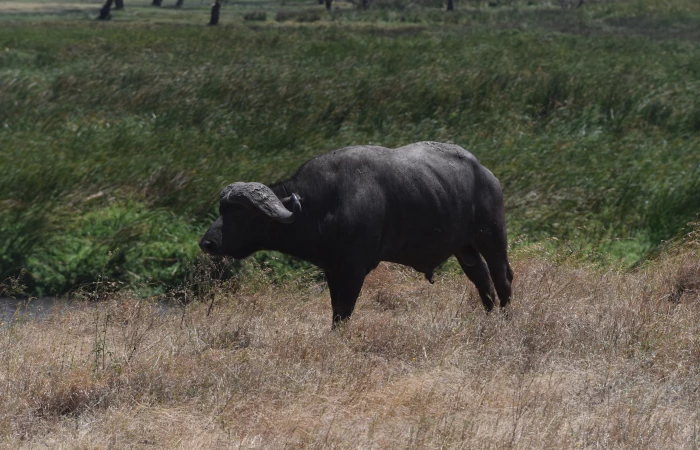Tour highlight
-
Main Destination :Kilimanjaro
-
Tour may be offered as :
- Trek
- Walking
-
Tour Duration:Day: 9Night: 8
-
You Visit:
- Arusha
- Moshi
- Kilimanjaro National Park
Tour Over View:
You will be picked up from the airport and transferred to Arusha to stay overnight at the hotel in Arusha. Later, our company representative will come for a briefing.
Tour itinerary:
Day 1
Airport-JRO-Arusha-Hotel
You will be picked up from the airport and transferred to Arusha to stay overnight at the hotel in Arusha. Later, our company representative will come for a briefing.
- Meal plan: half board.
Day 2
Arusha– Londorossi Gate (2,250 M) – Big Tree Camp (2,780 M)
After breakfast, you will be picked up at the hotel and taken to the Londorossi Gate at a height of 2,250 m. Once all the registration is complete, a bumpy yet adventurous ride will take you to the exceptional rainforest.
The fairly steep track makes its way through an unspoiled natural forest to the Big Tree Camp, which is about 2,780 m. Once you’ve reached the camp, you will spend the night in the tents. For those who haven’t had a camping experience before, this experience is going to etch itself in your memory forever.
Meal plan: All meals are included.
Day 3
Big Tree Camp (2,780 M) – Shira Camp 2 (3,900 M)
You have a long trek ahead of you today on a small trail, passing through the rainforest. As you ascend, the forest gradually thins out, and the landscape becomes drier and barren. On the moorland, you will find lobelia and Erica’s dotting the landscape. You will pass Shira Ridge before reaching Shira Camp 1 after 4 to 5 hours. Here you will have your lunch break and rest your limbs, enjoying the views of Mt. Meru and the Rift Valley in the distance. You will trek for about 3 hours, ascending 250 m. While walking on solidified lava, you will pass giant Senecios, almost 9 meters in height, before finally reaching your destination of the day, Shira Camp 2. You will enjoy an evening meal, and with a little bit of luck, you will be able to see the summit basking in the orange glow of the sunset.
- Meal plan: All meals are included.
Day 4
Shira Camp 2 (3,900 M) – Lava Tower (4,640 M) – Barranco Camp (3,960 M)
Today’s stretch will allow your body to acclimate to the ever-increasing altitude. Your destination for the day is Barranco Camp, only slightly higher than the previous night’s stay, but it will be reached through a detour to Lava Tower at 4,640 m in height. The ascent begins with a long trek above the Shira Plateau in the direction of the Lava Tower. The landscape slowly changes to an alpine desert, and the vegetation becomes less and less. Passing through the lobelia and Senecio-filled Barranco valley, you will reach your camp after 6–7 hours of walking. Your camp for the evening is Barranco Camp, said to be one of the most beautiful camps on the mountain. One of the reasons why most of our clients prefer the Lemosho route on our Kilimanjaro holiday packages is Barranco Camp. It is unlike any other camp experience and is worth taking your family or friends to.
- Meal plan: All meals are included.
Day 5
Barranco Camp (3,960 M) – Karanga Camp (4,035 M)
Many ascents and descents are on the agenda for today. You will start the journey by tackling the steepest part of the entire route, the Barranco Wall. As you climb, you might need to use your hands, but your guides will always be close by to offer assistance.
At the top of the Barranco wall, you will walk along the mountain ridge, which offers spectacular views of the southern glacier of Kibo as well as the summit itself. Around lunchtime, you will arrive at Karanga Camp, where a well-deserved rest is the order of the day.
- Meal plan: All meals are included.
Day 6
Karanga Camp (4,035 M) – Barafu Camp (4,640 M)
After breakfast, you will continue through the alpine desert until you have reached the Barafu Camp, situated at an altitude of 4,640 m. The journey takes about 3 to 4 hours, giving you enough time to relax and prepare for the summit night ahead. An early dinner will be followed by an early bedtime, before being awoken at around midnight.
- Meal plan: All meals are included,
Day 7
Barafu Camp (4,640 M) – Uhuru Peak (5,895 M) – Mweka Camp (3,080 M)
After a light snack and some hot tea, you will be ready to start the dark ascent to Uhuru Peak at around midnight. You will walk on frozen lava ash, using your headlamp to light the way. After 5 to 7 hours, you will arrive at the crater rim of Mt. Kilimanjaro, at Stella Point.
You will continue along the crater ridge, which will lead you to the “Roof of Africa”, the summit of Uhuru Peak (5,895 m). The landscape shimmers and shines in the light of the rising sun before you. After all the necessary photos have been taken, you will return to a smiling crew at Barafu Camp. After a hot lunch and a well-deserved break, you will make your way to Mweka Camp, where you will camp for the night.
- Meal plan: All meals are included.
Day 8
Mweka Camp (3,080 M) – Mweka Gate (1,630 M) – Arusha
Your amazing adventure comes to an end with a traditional farewell ceremony by your mountain crew before a gentle descent through the rainforest to Mweka Gate. Your driver will be waiting for you at the gate, ready to take you back to the hotel.
- Meal plan: half board.
Day 9
Arusha To Kilimanjaro International Airport
Normally this day depends on your flight’s details, otherwise check out will be 10:00 am and the transfer car will be ready to take you to the airport as per your flight details.
- Meal plan: Half board.
Include
- Professional, experienced, mountain guides:
- All Park fees Airport transfers Rescue fees
- All meals while on the Mountain
- Guides, Porters, cook salaries, and park fees
- Large portions of fresh, healthy nutritious food
- Clean, purified drinking water
- Oximeter
- Medical Kit
- Emergency oxygen
- Crisis management and safety procedures
- Fair and ethical treatment of porters
- Accommodation in Arusha
- Portable toilet
Exclude
- Flights
- Alcoholic and soft drinks
- Visa fees
- Tips Personal spending monies for souvenirs etc.
- Travel Insurance
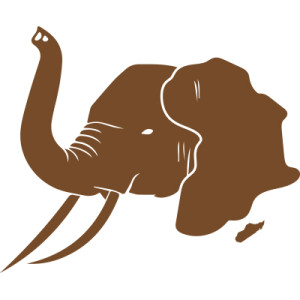
- GodyTour Expert
- Tour Expert
Kilimanjaro hike lemosho route
Tanzania is generally considered safe for tourists, including safari-goers. However, it's always advisable to exercise caution and follow the guidance of your tour operator or guide. Be aware of your surroundings, listen to instructions, and take necessary precautions to ensure a safe and enjoyable experience.
Tanzania is known for its diverse wildlife. On a safari, you can expect to see animals such as lions, elephants, giraffes, zebras, wildebeests, buffaloes, leopards, cheetahs, rhinos (in a few select areas), hippos, crocodiles, and a variety of antelope species. Birdlife is also abundant in Tanzania.
Essential items to pack for a Tanzania safari include lightweight and breathable clothing, comfortable walking shoes, a hat, sunscreen, insect repellent, binoculars, a camera, and any necessary medications. It's also advisable to pack layers for cooler mornings and evenings, as well as a waterproof jacket in case of rain.
The best time for a safari in Tanzania depends on what you want to see and experience. The dry season from June to October is popular as wildlife congregates around water sources. The wildebeest migration usually takes place from December to July. However, different parks have different peak seasons, so it's advisable to research specific regions and their seasonal patterns.
Yes, most visitors to Tanzania require a visa. You can obtain a visa in advance from a Tanzanian embassy or consulate, or you can get a visa on arrival at the airport or border entry points. It's recommended to check the visa requirements and application process beforehand to ensure a smooth entry into the country.
The duration of your safari depends on your interests and the specific areas you wish to visit. Many people opt for a 4- to 7-day safari, which allows for a good wildlife experience in multiple parks. However, it's also possible to extend your safari and combine it with other attractions, like the beaches of Zanzibar or cultural visits.
Tanzania offers a range of accommodations to suit different preferences and budgets. Options include luxury lodges, tented camps, mobile camps, and budget-friendly campsites. Some lodges and camps are located inside the national parks, while others are situated in private concessions adjacent to the parks.
